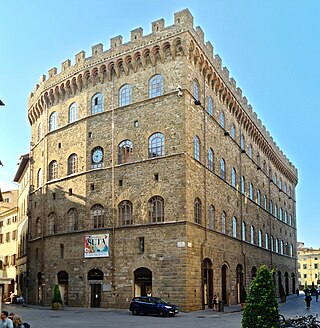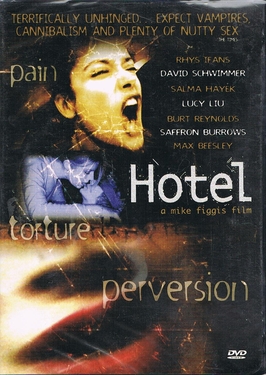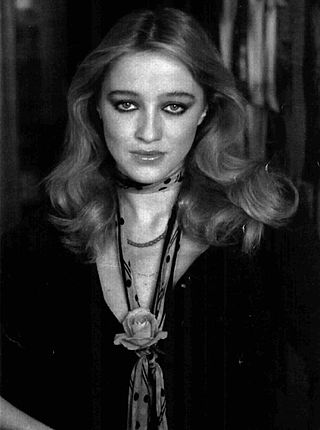
Erotica is art, literature or photography that deals substantively with subject matter that is erotic, sexually stimulating or sexually arousing. Some critics regard pornography as a type of erotica, but many consider it to be different. Erotic art may use any artistic form to depict erotic content, including painting, sculpture, drama, film or music. Erotic literature and erotic photography have become genres in their own right. Erotica also exists in a number of subgenres including gay, lesbian, women's, monster, tentacle erotica and bondage erotica.

Lorraine Bracco is an American actress best known for her performances as psychiatrist Jennifer Melfi on the HBO crime drama series The Sopranos (1999–2007) and for her breakthrough role portraying Karen Hill in the Martin Scorsese film Goodfellas (1990). Bracco began her career modeling in France and appeared in Italian-language films in the 1980s. Her English-language debut came in The Pick-up Artist (1987), which was followed by roles in Someone to Watch Over Me (1987), Sing (1989), and The Dream Team (1989). She has been nominated for an Academy Award, four Emmy Awards, four Golden Globe Awards, and three Screen Actors Guild Awards.

Cinema Paradiso is a 1988 coming-of-age dramedy film written and directed by Giuseppe Tornatore.

Vampire films have been a staple in world cinema since the era of silent films, so much so that the depiction of vampires in popular culture is strongly based upon their depiction in films throughout the years. The most popular cinematic adaptation of vampire fiction has been from Bram Stoker's 1897 novel Dracula, with over 170 versions to date. Running a distant second are adaptations of the 1872 novel Carmilla by Sheridan Le Fanu. By 2005, the Dracula character had been the subject of more films than any other fictional character except Sherlock Holmes.

The Dream Merchants is a 1949 novel by American author Harold Robbins. Set in the early 20th century, the book is a "rags-to-riches" story of a penniless young man who goes to Hollywood and builds a great film studio. A former Universal Studios employee, author Harold Robbins based the main character on Universal's founder, Carl Laemmle. With the Hollywood history in the backdrop, it is a love story.

Aron Tager was an American actor, poet, artist and sculptor, he is best known for voicing Cranky Kong in the animated television series, Donkey Kong Country and for portaging Dr. Vink on the children's television show Are You Afraid of the Dark?.

Diego Abatantuono is an Italian cinema and theatre actor, comedian and screenwriter, three-time winner of the Nastro d'Argento.

Palazzo Spini Ferroni is a large Gothic palace located along Via de' Tornabuoni at the corner of Piazza Santa Trinita, in central Florence, Tuscany, Italy. It stands across from the church of Santa Trinita.

Hotel is a 2001 British-Italian comedy horror-thriller film co-written and directed by Mike Figgis. It stars Salma Hayek, Rhys Ifans, David Schwimmer, Lucy Liu, Burt Reynolds, and John Malkovich.

Eleonora Giorgi is an Italian actress.

Gomorrah is a 2008 Italian crime drama film directed by Matteo Garrone, based on the non-fiction book of the same name by Roberto Saviano, who also collaborated in the screenplay. It deals with the Casalesi clan, a crime syndicate within the Camorra — a traditional criminal organization based in Naples and Caserta, in the southern Italian region of Campania.

Tony Sperandeo is an Italian actor of cinema and television. Sperandeo is notable for frequently playing the roles of tough characters from his native region, Sicily. As of 2011, he was working on La Nuova Squadra, a police drama televised by Rai Tre, as the Superintendent Salvatore Sciacca.

Inspector Hornleigh Goes To It is a 1941 British detective film directed by Walter Forde and starring Gordon Harker, Alastair Sim, Phyllis Calvert and Edward Chapman. It was the third and final film adaptation of the Inspector Hornleigh stories.

We Believed is a 2010 Italian drama film directed by Mario Martone, based on a screenplay by Martone and Giancarlo De Cataldo inspired by events around the 19th-century Young Italy political movement and based on the novel of the late art historian Anna Banti. Nominated for the Golden Lion at the 67th Venice International Film Festival, the film was released in Italy on 12 November 2010.

The Florentine Dagger is a 1935 American film noir mystery film directed by Robert Florey.
Enzo Monteleone is an Italian film director and screenwriter.

Claudio Bisio is an Italian actor, presenter, comedian, voice actor, showman, director, cabaret performer and writer.

Siberian Education is a 2013 Italian crime-drama film directed by Gabriele Salvatores.

Sud, also known as South, is a 1993 Italian drama film directed by Gabriele Salvatores.
Vincenzo Amato is an Italian actor and sculptor.

















